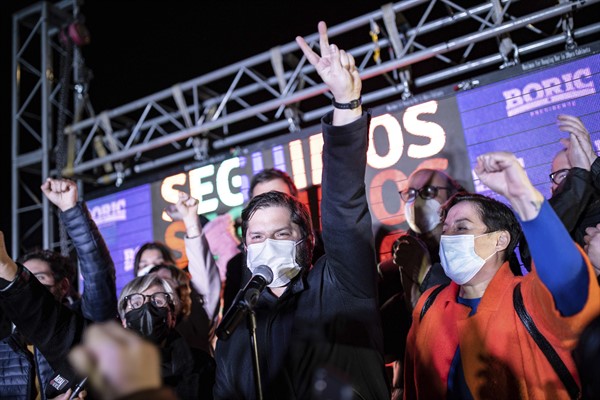Primary elections in Chile over the weekend brought a sigh of relief to those in Latin America anxious about growing polarization in their countries. Many observers have feared that the crises roiling the region will prompt voters to flock to the extremes, on both the right and left, and create further instability and uncertainty. Those concerns were heightened after Peru’s first-round presidential election, featuring 18 candidates, catapulted the far-right and far-left candidates into a tense runoff, followed by a perilous period of uncertainty that only came to a close this week, six weeks after the votes were cast.
But voters in Chile surprised the experts and the pollsters, lining up behind the more moderate candidates for the Nov. 21 first-round election.
Ahead of the primaries, which grouped together multiple parties of the left and right respectively, opinion polls signaled that the two most likely winners would be the Communist Party’s Daniel Jadue, mayor of a Santiago neighborhood, and the veteran politician Joaquin Lavin, of the Independent Democratic Union, a conservative party founded by an adviser to the late military dictator Augusto Pinochet.

